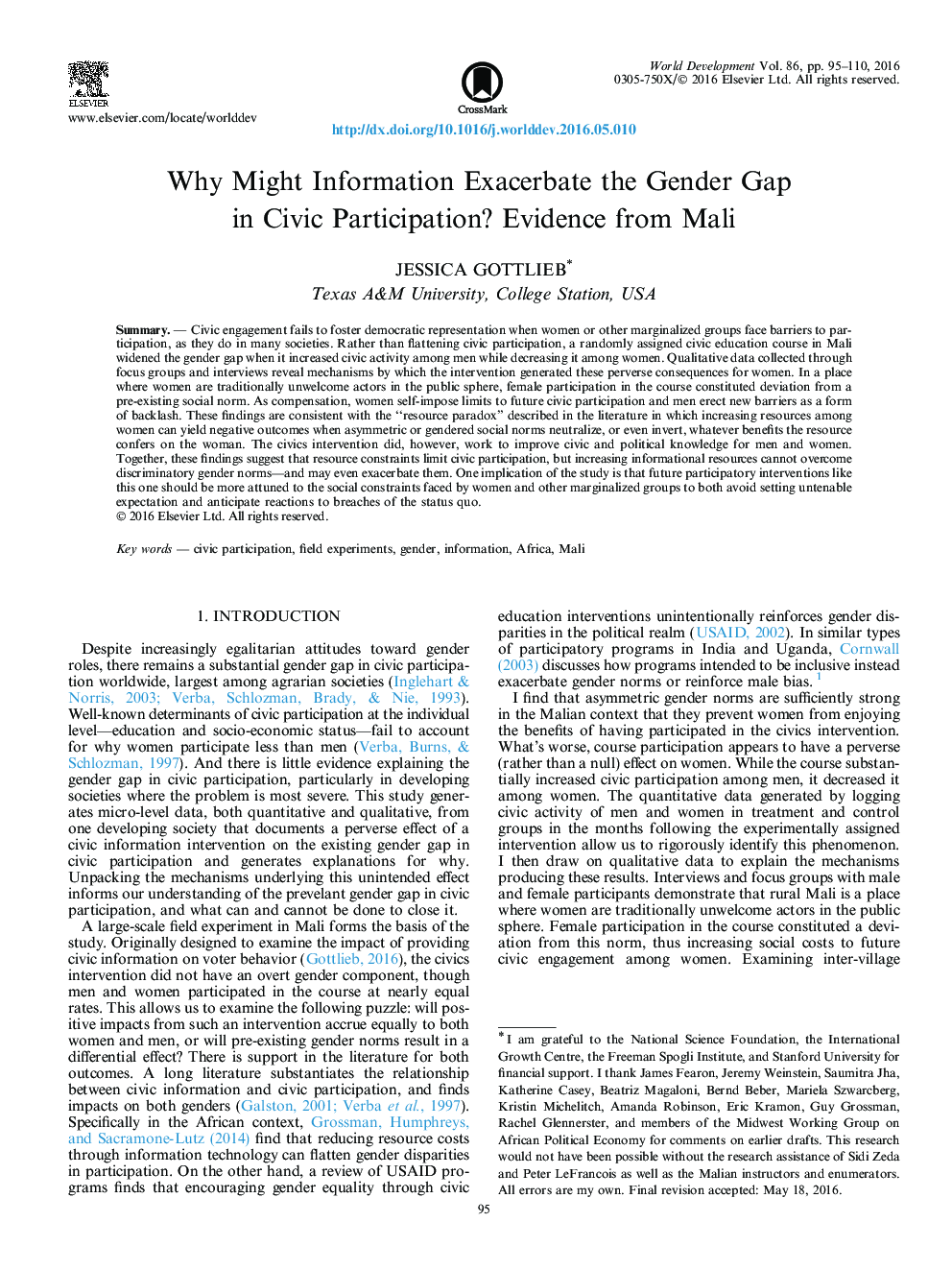| Article ID | Journal | Published Year | Pages | File Type |
|---|---|---|---|---|
| 7392473 | World Development | 2016 | 16 Pages |
Abstract
Civic engagement fails to foster democratic representation when women or other marginalized groups face barriers to participation, as they do in many societies. Rather than flattening civic participation, a randomly assigned civic education course in Mali widened the gender gap when it increased civic activity among men while decreasing it among women. Qualitative data collected through focus groups and interviews reveal mechanisms by which the intervention generated these perverse consequences for women. In a place where women are traditionally unwelcome actors in the public sphere, female participation in the course constituted deviation from a pre-existing social norm. As compensation, women self-impose limits to future civic participation and men erect new barriers as a form of backlash. These findings are consistent with the “resource paradox” described in the literature in which increasing resources among women can yield negative outcomes when asymmetric or gendered social norms neutralize, or even invert, whatever benefits the resource confers on the woman. The civics intervention did, however, work to improve civic and political knowledge for men and women. Together, these findings suggest that resource constraints limit civic participation, but increasing informational resources cannot overcome discriminatory gender norms-and may even exacerbate them. One implication of the study is that future participatory interventions like this one should be more attuned to the social constraints faced by women and other marginalized groups to both avoid setting untenable expectation and anticipate reactions to breaches of the status quo.
Related Topics
Social Sciences and Humanities
Economics, Econometrics and Finance
Economics and Econometrics
Authors
Jessica Gottlieb,
